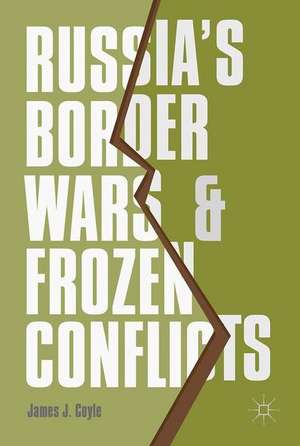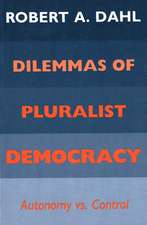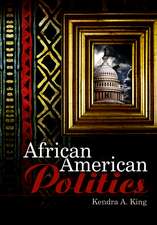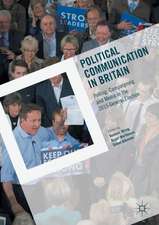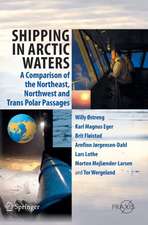Russia's Border Wars and Frozen Conflicts
Autor James J. Coyleen Limba Engleză Hardback – 14 iul 2017
| Toate formatele și edițiile | Preț | Express |
|---|---|---|
| Paperback (1) | 782.45 lei 6-8 săpt. | |
| Springer International Publishing – 14 aug 2018 | 782.45 lei 6-8 săpt. | |
| Hardback (1) | 791.47 lei 6-8 săpt. | |
| Springer International Publishing – 14 iul 2017 | 791.47 lei 6-8 săpt. |
Preț: 791.47 lei
Preț vechi: 965.20 lei
-18% Nou
Puncte Express: 1187
Preț estimativ în valută:
151.44€ • 157.74$ • 126.25£
151.44€ • 157.74$ • 126.25£
Carte tipărită la comandă
Livrare economică 28 martie-11 aprilie
Preluare comenzi: 021 569.72.76
Specificații
ISBN-13: 9783319522036
ISBN-10: 3319522035
Pagini: 333
Ilustrații: XI, 333 p. 6 illus. in color.
Dimensiuni: 148 x 210 mm
Greutate: 0.71 kg
Ediția:1st ed. 2018
Editura: Springer International Publishing
Colecția Palgrave Macmillan
Locul publicării:Cham, Switzerland
ISBN-10: 3319522035
Pagini: 333
Ilustrații: XI, 333 p. 6 illus. in color.
Dimensiuni: 148 x 210 mm
Greutate: 0.71 kg
Ediția:1st ed. 2018
Editura: Springer International Publishing
Colecția Palgrave Macmillan
Locul publicării:Cham, Switzerland
Cuprins
1. International Law, Realism and Nationalism.- 2. Ukraine.- 3. Moldova.- 4. Georgia.- 5. Nagorno-Karabakh.- 6. Conclusion.
Notă biografică
James J. Coyle is Director of Global Education, Chapman University, USA and a Non-Resident Senior Research Fellow at the Atlantic Council. Dr. Coyle previously held a variety of positions in the US government, including Director of Middle East Studies, US Army War College.
Textul de pe ultima copertă
This book examines the origins and execution of Russian military and political activities in Moldova, Georgia, Ukraine, and Azerbaijan. Using a realist perspective, the author concludes that there are substantial similarities in the four case studies: Russian support for minority separatist movements, conflict, Russian intervention as peacekeepers, Russian control over the diplomatic process to prevent resolution of the conflict, and a perpetuation of Russian presence in the area. The author places the conflicts in the context of international law and nationalism theory.
Caracteristici
Provides a comprehensive review of the conflict in Ukraine and examines international law as related to interventional policies Shows that Ukraine is the latest manifestation of a recurring pattern Reviews nationalism theories and places the Russian/Putin form of nationalism firmly in the ethnicity column as opposed to acceptance of the general will of the people Includes supplementary material: sn.pub/extras
